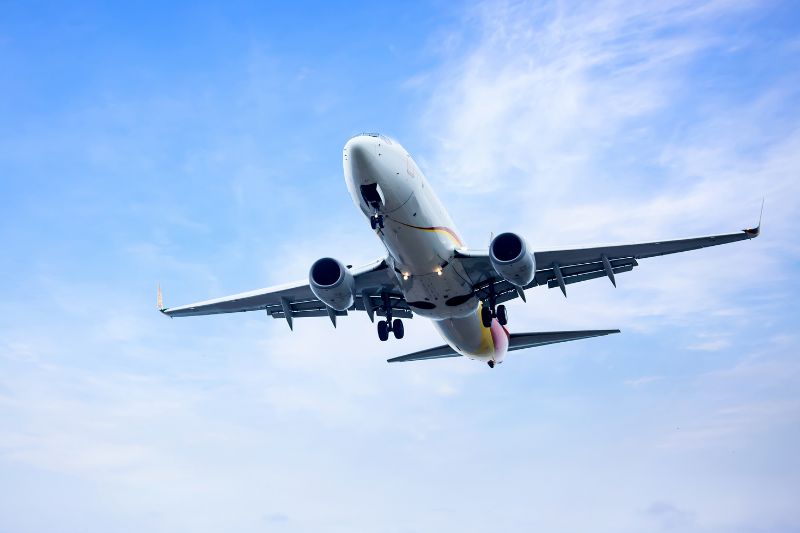No products in the cart.
How is Technology Reshaping Air Travel?

The airline industry has revolutionized the way we travel with the help of technology. Since the Covid-19 pandemic, the way airlines operate has greatly changed. Because of the innovative technologies airlines have adopted, people can have a better onboard experience now. One of the best airlines from all around the globe, Singapore Airlines, adopted some good measures even before the pandemic hit, as they improved both the experience of their customers and employees. For example, the airline used technology to support pilots in the cockpit and improve aircraft maintenance.
If you are planning a trip soon, you will benefit from many technologies on the flight that will improve your well-being. But don’t forget to consider an eSIM to stay connected with your family and friends while exploring a new city. Depending on your phone type, you can set up your eSim and improve your journey. For example, if you have a Google Pixel, you can consider a Google Fi eSIM, which will greatly enhance your travel experience in a new destination.
Let’s explore what types of technology have revolutionized air travel.
Blockchain technology
Since blockchain technology is very popular at the moment, especially in the financial sector, it has become increasingly considered in other industries, including the airline sector. Airlines have just begun to realize blockchain technology’s potential and the fact that it could improve many of their operations. For example, Air France has talked recently about how they want to integrate blockchain technology to improve workflow and all business processes. Here are the benefits of blockchain technology and how it can be used by airlines to improve the efficiency of their operations.
- Airlines will no longer need physical ID proofs, as the data about passengers could be kept in a virtual decentralized database. This database is characterized by great safety and can be accessed only by relevant people.
- Blockchain will help to build better security, and airlines can manage customer data better without risking data breaches.
Augmented and virtual reality
Several industries have recognized the benefits augmented and virtual reality (AR/VR) could add to their companies, and airlines are no exception. Many people expect to see this technology in the airport space as the overall operations of airplanes can be enhanced with the help of apps based on AR or VR.
For example, Gatwick Airport already uses AR and helps its passengers navigate easier through the complex layout of airports. Also, the airport uses AR tech to help air traffic controllers in their jobs and keep planes safe.
Artificial technology
AI has become more and more considered to enhance customer experience. AI can be used for many operations and improve the time of anyone with the help of voice-based AI tools or chatbots. Airlines have also understood the power of AI and began to use it to keep up with technological development. For instance, EasyJet uses AI for predictive analysis. With this technology, the airline is able to create new services and personalized offers for individual travelers. The airline also has a recognition tool that reduces a lot of time as it fills out information and reads passports more easily. This makes the data management operations more manageable and the data entry processes easier.
Beacon technology
Beacon technology has also improved over the years and has seen a lot of success, especially in retail. But there is also a huge potential that airlines will also use it to make navigation through airports easier for their customers. Beacon technology can help airports know where passengers are and send them relevant information and personalized offers. The updates can be about the baggage carousel, boarding gate number, flight status, or about the eateries and shops they can find near them.
An airport already leveraging Beacon technology is MIAMI International Airport, which creates personalized traveler experiences. The airport has an app that provides data about the entire airport, and travelers can see better the spaces where they can navigate.
Wearable technologies
Airlines have begun to use wearable technology to improve customer and employee experience. For example, Japan Airlines uses Microsoft’s HoloLens to train new engineers and crew members. By using HoloLens, people can be trained and have an experience that looks like the one they could have on a plane. British Airways and EasyJet have also created apps for Apple Watch users that let their passengers receive real-time updates on their wrist or store boarding passes.
Mobile solutions
Smartphones are an integral part of people’s lives. This is why airlines have started to offer mobile solutions that help their passengers stay updated with details of their flights. They also guide customers throughout the journey, from booking a flight until arriving at their destinations. For instance, Delta Airlines has allowed their passengers to have virtual boarding passes 24 hours before their journey begins. In this way, they greatly make the check-in process easier for the customers.
Data and Analytics
Airlines can have valuable insights if they analyze the data available. With this data, airlines could create delightful offers for travelers and better understand the customers’ preferences based on previous information about travel itineraries and purchase history. For example, United Airlines uses a system that analyzes around 150 variables in their clients’ profiles. The airline provides tailor-made offers with the data collected, greatly improving its operations. This is why United Airlines has increased its revenue by 15% after implementing this system.
Also, Southwest Airlines has partnered with NASA so that they will identify safety-correlated issues. They have an automated system that collects vast data and warns about the problems or anomalies that might cause potential accidents.
Final Words
Many technologies improve airlines’ operations and, at the same time, passengers’ experience, as they have a better time and enhanced safety when flying. The airline industry is thriving at the moment as people have begun to travel again. So, if airlines take more steps to increase customer satisfaction, they will only have benefits.















Leave a Reply